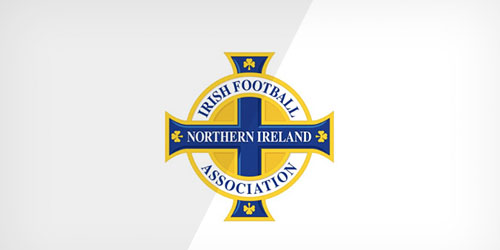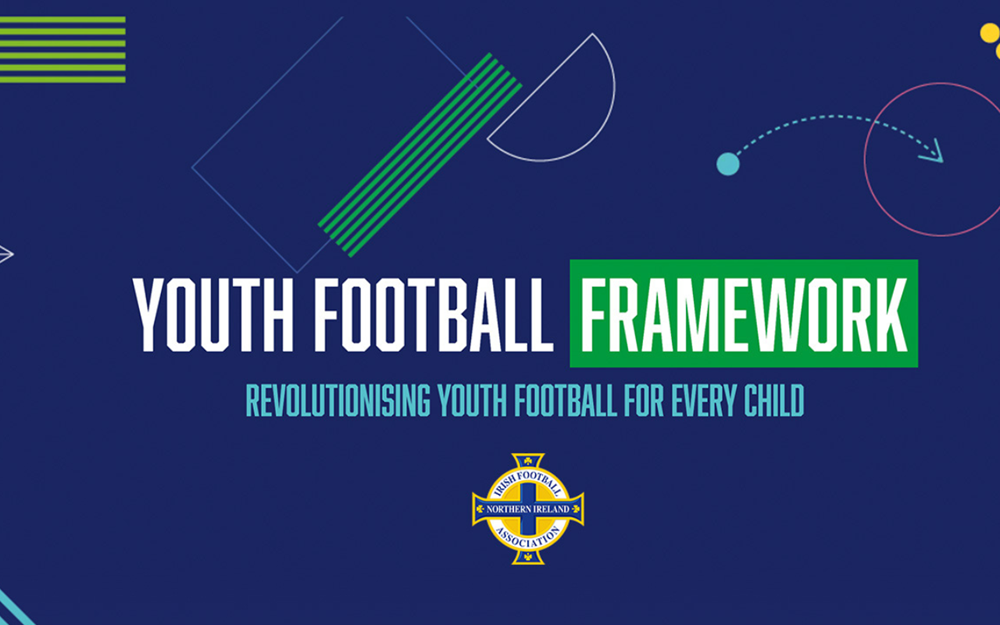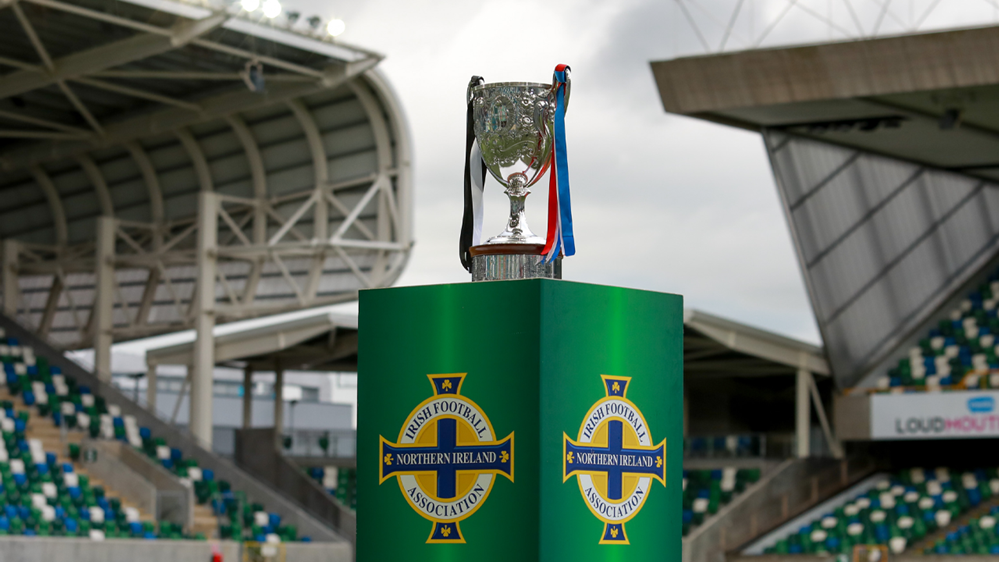
APPEAL AGAINST DECISION OF THE IFA BOARD BY BESSBROOK UNITED FOOTBALL CLUB
on 8th May 2019 before the Appeals Committee
Attending on behalf of Bessbrook Football Club (‘the Club’) was Mr Paddy Duffy Chairman, and Secretary Mr Ben Treanor. Supporting their case were Norman Livingston, Member and Maurice Johnston Chair of the IFA Junior and Youth Cup Committee.
On behalf of the Irish Football Association (IFA) Board was Conrad Kirkwood, Vice Chair of the IFA, Leigh Sillery, IFA Club Licensing and Facilities Manager, and Patrick Nelson Chief Executive of the IFA.
Background
This appeal concerns the eligibility of Bessbrook United Football Club player Mr Conor Sloan, (‘the player’), to play in the semi-final tie of the fonaCAB Junior Cup between Bessbrook United and Enniskillen Rangers which was played at Lakeview Park, Loughall, on Monday 1 April 2019.
The IFA observed at the game that the player was not registered on the IFA Central Registration System (Comet).
Bessbrook United FC the club proceeded to win the game and progressed to the final.
Subsequently, the IFA asked ‘the Club’ for details of ‘the players’ registration. The club explained that they were very shocked to discover ‘the player’ was not registered as they had sent the requisite documentation to Carnbane (Newry and Mourne) Football League (‘the League’) for them to complete the registration process.
‘The League’ were asked to clarify the position and conceded that the registration of this one particular player had not been fully completed by themselves and that it had got ‘lost in transit or possibly slipped through the net’. However, even though the player was not registered on the central registration system , they considered on the basis of his past registrations and current season match playing that he was a player for Bessbrook United Football Club .’The league’ forwarded the contention that it retained the right to set criteria for eligibility and that this was provided for in Rule 14 of the IFA Player Regulations, subject to FIFA rules on the Status and Transfer of Players.
The matter was referred to the Junior and Youth Cup Committee (‘JYCC’) on 10thApril to examine the issue of ‘the League’ confirming the player as eligible to play in the aforementioned match.
The ‘JYCC’ heard submissions from both ‘the Club,’ the league’ and IFA representative on the matter. It was highlighted that there was no evidence of submission or receipt by ‘the League’ of the players registration form. Nor was there any proof of transmission of league details onto the central registration system. The IFA made representations that player registration was essential for eligibility. ‘The Leagues’ view remained unchanged in that that they considered ‘the player’ eligible by virtue of accepting oral assurances from ‘the Club’ they had sent the documentation, that the player had been previously registered and was playing for the team. The ‘JYCC’ did consider the matter and voted to affirm ‘the Leagues’ decision that the player was eligible to play.
Enniskillen Rangers then lodged an appeal against the ‘JYCC’ decision. This was not accepted by the Appeals Committee as the team had not been a party to the original decision concerning the registration of a player for another club as per Art 14.2 of the IFA Articles of Association
The IFA asked the ‘JYCC’ to review the decision. This review was held on 24thApril and concurred unanimously with the previous ‘JYCC’ decision which determined ’the player’ was eligible to play. Later, we the appeals committee did hear submissions from the ‘JYCC’ that this review was merely conducted into the procedures employed at the previous ‘JYCC’ hearing and not into the substantive issues of the case.
Consequently, on 25thApril at an IFA Board meeting, the need for a special investigatory hearing into the ‘JYCC ‘ decision on the matter was agreed and subsequently arranged for the 8thMay 2019. To enable this procedure the IFA Board informed the ‘JYCC’ it had revoked the powers delegated to the ‘JYCC’ in determining the eligibility of ‘the player’ and returned the powers to themselves. ‘The club’, ‘the League’ and the ‘JYCC’ were invited to attend and make representations on the matter.
On 8th May 2019 the IFA Board, substituting itself for the ‘JYCC’, heard representation from the ‘JYCC’ and received written submissions from ‘the Club’, ‘League’ and IFA Board observations. In short, at this meeting, the ‘JYCC’ stood over its original decision concerning the players eligibility, and questioned the IFA Board’s authority to conduct the matter in the way it had proceeded to.
The IFA Board deliberated on the matter and overturned the ‘JYCC’ decision and decided since ‘the player’ was not registered in accordance with IFA regulations he had not been eligible to play in the semi- final cup tie, and consequently the club which was defeated in the semi- final tie (Enniskillen Rangers) was reinstated to the Cup Final.
‘The Club’ availed of its right of appeal. The appeal was grounded on the following;
1. That the ‘JYCC’ had been entitled to make the decision they did on the basis of the information provided to it and that the decision was correct. They contended the decision was final as per Rule 30 of the Irish Junior Cup Rules which states the decision of the committee is final.
2. That the IFA Board was not empowered to make the decision to overturn the ‘JYCC’ decision on ‘the players’ eligibility and that the revocation of power from the ‘JYCC’ was unprecedented.
3. That the IFA Board investigatory process was biased, unfair and against the rules of natural justice.
4. That there was irregularity in the manner in which the matter of ‘the players’ eligibility was raised at the Council meeting on 4thApril, in that a conflict of interest was not declared by the party raising the matter.
5. That a name discrepancy on the opposition team sheet issued on game night 1st April was not recorded correctly and there had been no issue raised about this.
Appeal Hearing
Under Art 14 of the IFA Articles of Association the Appeals Committee considered all the documentation submitted by the parties to the case. In addition, oral submissions were provided on the evening of the hearing by those attending.
1. The first aspect to consider was the original raising of the matter at the IFA Council meeting on 4th April 2019. It was submitted on behalf of ‘the club that there was an irregularity in that a conflict of interest was not disclosed by the party raising ‘the players’ eligibility by not declaring his association with the defeated football team.
We considered the evidence on this matter. As per Art 8 (5) (c) of the IFA Articles of Association, ‘a council meeting provides a forum for discussion about and consideration of significant issues for the development of Association Football in Northern Ireland’. There was no reference by ‘the Club’ as to any limitations imposed on the Council concerning what they could consider for discussion. The rules say the meeting is ‘a forum for discussion about and consideration of significant issues for the development of Association Football in NI’. We do consider the issue of player registration and eligibility to be a key matter for the IFA and it is reasonable that the Council would be interested in examining the matter. The issue of conflict of interest could not evolve any further as the person raising the matter played no further role in the process other than raising the issue.
2. The issue that the ‘JYCC’ was entitled to come to the decision it did and that this was final was considered.
We agree that the ‘JYCC’ is entitled to decide on the issue of player eligibility as per rule 4 Junior Cup Rules states;
that to be eligible to play the player must be registered. Furthermore, ‘if the committee has any doubt as to the qualification of any player, …they can call such player, and or club to which he belongs...to prove he is qualified according to the rules and failing satisfactory proof, they shall disqualify such player ….’
It is not necessary to rehearse the full details presented before the ‘JYCC‘ on behalf of the IFA Board, ‘the club’ and the ‘League’. The ‘JYCC’ did examine the players eligibility and in their eyes they deemed the player a player for Bessbrook United and eligible to play.
However, we do not accept the argument that the’ JYCC’ decision on the matter is final, as there is a right of appeal provided for in Art 30 JCC Rules.
3. Turning to the issue of the powers of the IFA Board, the IFA Board do have a wide powers as Article 10 (1) Articles of Association vest in the Board ‘management of the business and control of the association’.
Art 10(2) ‘allows the Board to delegate any of its powers .. to such persons as it thinks fit’. In this situation the Board delegated its powers of running the Junior and Youth Cup Competitions to the ‘JYCC’. as per Art 11 of the IFA Articles of Association.
Art 11 of the IFA Article of Association provides for the delegation of power to the Football Committee and its sub committees the organisation and management of Association Football and the Junior Committee has been delegated the role of management of the Junior Cup Competition under Rule 14 Football Regulations.
Subsequent to the decision of the ‘JYCC’, the IFA Board undertook to revoke the delegated powers in order to carry out its own investigation into the decision of the JYCC and the players eligibility.
We consider that this step was open to the Board ‘in exercising its management and control of the association ‘. This step is considered warranted due to the net significant issue to be examined.
We took note of the regulatory framework concerning registration that is applicable in this appeal. We consider there are ramifications for Association Football if the regulations concerning player registration are not followed. We view player registration as a cornerstone of football player eligibility. We have considered the submission by parties to this case and believe that player registration and eligibility are closely interlinked. The registration is the players first point of base. We do accept that leagues have the right to determine criteria for eligibility but regard this as a further layer built upon the registration stage. We do not consider you can fulfil eligibility criteria without registration is a sustainable argument. Registration is a fundamental base. This is reflected in the multitude of provisions concerning player registration peppered throughout the IFA regulatory provisions. They are as follows;
1. Under Football Regulation 26 clubs are required to register amateur players and must do so in accordance with IFA player regulations and the regulations of the relevant leagues and such player details will be recorded centrally with the Associations.
In addition, Rule 30 of the Football Regulations states it is the responsibility of the club to ensure players are eligible to play for a match.
2. Furthermore, the Amateur Game Player Registration Regulation provide as follows ;
1 (d) states all amateur registrations shall be administered by the clubs/leagues using the IFA Central registration system
1(g) states a player not registered who appears for a club in any official match shall be considered to have played illegitimately.
1(h) states it shall be the responsibility of the clubs playing in any match to be played …to ensure that its players are eligible to play in such a match.
2.0 (a). A player must be registered at an association to play for a club as either a professional or amateur in accordance with the provisions of Art 2. Only registered players are eligible to participate in organised football. ... (subject to FIFA regulations on the Status and Transfer of players ). By the act of registering, a player agrees to abide by the statutes and regulations of FIFA, the confederation and the associations.
3. Finally, rule 4 Junior Cup Rules states that to be eligible to play in competition, the players must be registered to play for their club in their respective league competitions.
We consider the issue of player registration a key cornerstone in the governance and management of the game of football along with maintaining the integrity of the results of the games played. The issue of registration of players and their eligibility is considered by the Appeals Committee to be such a significant matter, that it would be expected to prompt the IFA Board to take steps to address the difficulties this case presented. Albeit, this is a rare situation to have presented itself, the facts of the case warranted intervention by the IFA Board.
We consider the powers conferred on the IFA Board under Art 10 does provide authority for the process they invoked and employed.
It is noted there is no suggestion of any deliberate wrongdoing on behalf of the parties concerned either on the part of ‘the Club’, ‘the League’ or ‘JYCC’. In fact, it is clear all these participants are held in high esteem and had attempted to resolve the unfortunate situation and impact on a winning team, of a players registration not being completed according to the IFA regulations.
We do consider that redelegation of power to the JYCC should follow once this matter is concluded.
We also note that the delegation of power by the IFA Board refers to IFA committees and does not extend to IFA Judicial committees such as the Disciplinary, Licensing and Appeals committees.
We do recommend examination by the IFA of the need to expand or amend the Articles of Association to expressly state the circumstances in which revocation of committee powers may occur.
4. The argument was submitted that the IFA Board process was unfair. We consider it would be better practice to use an arms length panel to deal with disputes between the IFA and its own committees. However, in the absence of provisions for such, we looked at how this matter was handled.
We considered the ability to appeal the decision to an independent Judicial Committee a positive aspect. We heard evidence on how the IFA Board special investigatory meeting was handled. All parties were given opportunity to attend, documents made available to each of the participants and the net points to be addressed were in the open. The decision was voted on by the IFA Board.
We do not accept the argument that there was bias in the hearing decision as we do not have information before us except speculation on behalf of the participants that bias was present. In the absence of any cogent evidence we cannot accept this.
However, this case does present an imperative for the IFA Board to put their minds to addressing the potential for the perception of bias in this type of dispute between the IFA Board and their committees. Serious consideration should be given by the IFA to amend governing provisions to provide for the appointment of an independent panel in order to mitigate against the potential for claims of unfairness by participants.
5. We considered the name discrepancy on the opposition team sheet issued on the game night 1stApril 2019, however, we were not provided with any evidence that this was anything other than a typographical error.
Finally, we would recommend the IFA to issue a timely emphatic reminder to all clubs the importance for ensuring completed registration of their players, especially during this period of transition to the Central Registration System.
On the basis of the foregoing the appeal is dismissed.
Appeals Committee
Eileen Larkin
Carley Chapman
Ian Beggs
23/5/19









